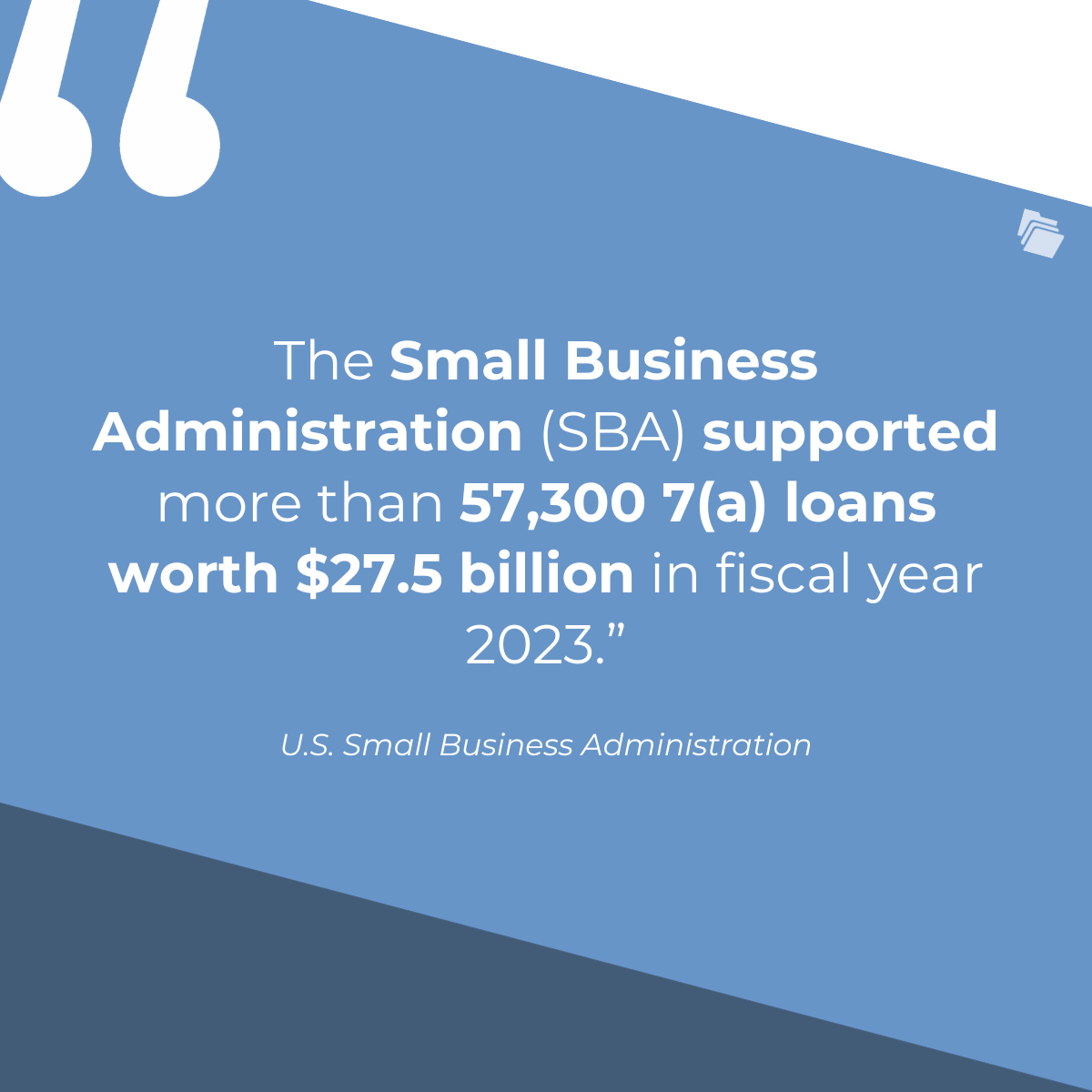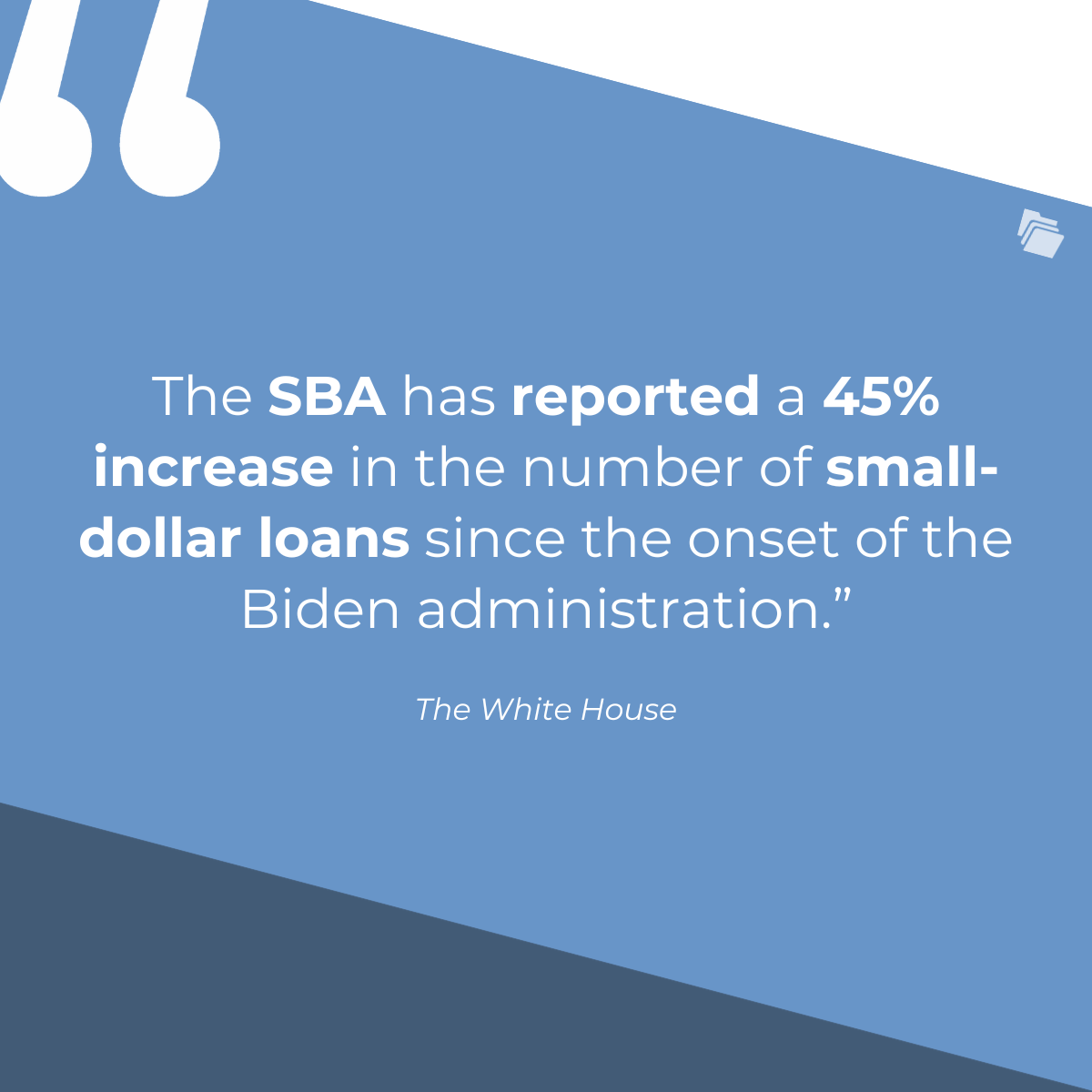Boost Efficiency: The Power of SBA Loan Software for Lenders
Simplify the loan application process, reduce manual work and integrate real-time data for efficient risk assessments and faster access to capital...
Maximize your business potential with government-backed loans: benefit from extended credit, reduced costs, increased borrowing capability and more.
Working with a government guaranteed lender provides businesses and individuals with access to credit that might otherwise be unavailable. Government guaranteed lenders operate in coordination with federal agencies, offering programs to assist with home buying, agricultural production, business financing, and equipment purchases. They often cater to rural and underserved communities and to borrowers who may not have sufficient collateral or credit histories.
Government-backed loans have become increasingly vital to sustained economic growth in recent years. These loans offer several benefits, such as longer amortization periods, higher loan-to-value ratios, and lower borrowing costs. This is especially significant for segments of the population that may struggle to access traditional credit. Financial institutions are encouraged to extend these credits as the risks are shared with government entities, making the loans less risky for lenders.
In 2022, the Small Business Administration (SBA) has authorization to guarantee up to $34 billion in loans, despite only issuing $26 billion. The SBA aims to balance the playing field for small businesses, ensuring they have access to efficient and cost-effective capital. Furthermore, the Federal Deposit Insurance Corporation (FDIC) reported that FDIC-supervised banks are involved in originating billions of dollars in government-guaranteed loans, emphasizing the critical role these loans play in promoting lending.
These government-backed lending programs are essential for providing credit to critical sectors of the economy and supporting economic growth and job creation. This guide examines the advantages of government-backed loans for businesses and borrowers whose creditworthiness falls outside the parameters of traditional bank loans.
Government-guaranteed loans provide important funding for small businesses and startups, which are vital contributors to economic growth and job creation. These loans meet the needs of small enterprises by providing them with access to capital that might otherwise be considered too risky due to traditional lenders' risk assessments. By securing these loans, small businesses can invest in growth and operations, which is beneficial for the broader economy as these entities represent 99% of all U.S. companies and employ nearly 50% of all private-sector workers.
One significant benefit for the economy is the ability of government-guaranteed loans to stimulate job creation. For instance, the Small Business Administration (SBA) supported more than 57,300 7(a) loans worth $27.5 billion in fiscal year 2023, a considerable portion of these being small-dollar loans. The SBA's actions, particularly in increasing the number and value of these loans, reflect an understanding of the crucial role that small businesses play in economic growth. This support is essential as small businesses have reported gross revenues of $13.3 trillion annually, showcasing their substantial impact on the U.S. economy.

Additionally, the SBA's recent policies aimed at modernizing and improving access to these loan programs further demonstrate the commitment to filling the capital access gap. By streamlining eligibility and underwriting requirements and expanding the reach of programs like the Community Advantage program, the SBA is actively working to meet the needs of today's entrepreneurs, which in turn fosters a more dynamic and resilient economy.
The trust and reliability inherent in government-backed lending programs stem from the assurance that these loans have the support of government entities with greater ability to absorb losses than private enterprises. This backing provides a foundation of confidence for both borrowers and lenders, influencing the dynamics of lending and borrowing in several ways:
Government backing for loans generally comes in the form of guarantees or insurance provided by federal agencies. These guarantees offer a promise that the government will cover a portion or all of the loan amount if the borrower defaults. This assurance is critical for loans made to segments of the market that might otherwise be considered high-risk or only able to access loans under unviable terms.
With the government acting as a guarantor, the risk of borrower default is significantly reduced. This assurance of repayment makes lenders more willing to extend credit, particularly in uncertain economic times. For instance, the SBA has reported a 45% increase in the number of small-dollar loans since the onset of the Biden administration, indicating a growing trust in these government-backed instruments.

The lower risk associated with government-backed loans is a two-way street benefiting both parties:
The trust in government-backed loans also contributes to broader economic stability. By facilitating the flow of credit to businesses and individuals who may not have access to traditional financing, these programs play an integral role in fostering economic growth and maintaining the health of the financial sector. The impact is measurable, with government guarantees supporting millions of jobs and contributing significantly to the annual gross revenue of small businesses. The trust and reliability offered by these programs are not just theoretical but are reflected in the substantial economic activities they enable.
Government-guaranteed lending programs are designed to facilitate access to credit under terms that are typically more favorable than standard commercial loans. These terms benefit borrowers by reducing the cost of borrowing and improving their ability to manage cash flow effectively.
Here are some of the favorable terms that borrowers often enjoy:
Interest rates are often the most critical factor for borrowers when considering a loan. Government guarantees can lead to reduced interest rates because the lender's risk is mitigated. For instance, in the SBA 7(a) loan program, interest rates are negotiated between the lender and the borrower but are subject to SBA maximums, which are often below market rates.
Longer repayment terms are another advantage, which can ease the immediate financial burden on borrowers, allowing for more flexibility in financial planning. For example, repayment terms for SBA 7(a) loans can go up to 25 years for real estate and up to 10 years for equipment, depending on the loan's purpose.
Government backing can also enable borrowers to qualify for larger loan amounts than they might otherwise be able to secure. This increased borrowing capacity can be critical for funding significant business investments or expansions.
These favorable terms contribute significantly to the borrower's ability to sustain and grow their operations:
Government-guaranteed loans play a pivotal role in promoting local businesses and bolstering regional economies. These loans are particularly focused on fostering community development, with a strong emphasis on creating sustainable jobs and ensuring continuous financial support during challenging times.
Here are several ways in which these loans contribute to community development:
Government-backed loans often provide essential capital for local businesses to start up, expand, and innovate. By doing so, they become catalysts for economic activity within their communities, generating additional business for local suppliers, retailers, and service providers.
By supporting a wide array of local businesses, these loans help to diversify and strengthen regional economies. This diversification is crucial for regional resilience, ensuring that economies can withstand sector-specific downturns and other economic challenges.
A robust local business sector is a significant source of employment. Government-guaranteed loans support job creation by enabling businesses to invest in new projects and expansions, directly leading to new hiring opportunities.
During economic downturns, such as those experienced during the COVID-19 pandemic, government-guaranteed loans provide a lifeline to businesses struggling with liquidity issues, helping keep them afloat when traditional financing options are unavailable.
In 2023, the U.S. Economic Development Administration (EDA) enacted a total of $403 million in federal investments, leading to the support of more than 27,000 jobs and nearly $8.5 billion in private investment. This investment underscores the substantial influence of government-backed financing on community development and job creation.
Moreover, the Emergency Capital Investment Program (ECIP) has been pivotal in supporting low- and moderate-income community financial institutions. Through this program, the treasury provided over $8.57 billion to community financial institutions, which in turn originated approximately $26 billion in loans, 75% of which went to low- and moderate-income borrowers, borrowers in rural communities, and other targeted recipients.
FileInvite’s secure file sharing and document collection platform enhances the loan application process for government-guaranteed loans by offering solutions that streamline complex procedures:
With features to keep borrowers and loan officers in real-time communication across secure channels, FileInvite cuts the stress out of government guaranteed loan applications and helps connect important sectors of the economy with lenders and financial services.
To learn more and request a demo, visit FileInvite today.
Simplify the loan application process, reduce manual work and integrate real-time data for efficient risk assessments and faster access to capital...
Avoid SBA guaranty denials by understanding the 10 most common reasons and implementing proper due diligence for your borrowers' loan applications.
Discover the benefits and limitations of SBA loan guarantees designed to assist small businesses.
Eliminate the monotony of back-and-forth emails and inefficient systems when gathering client information. Get hours back each week as FileInvite handles the most time-consuming work for you.
Get started in as little as 5 minutes.